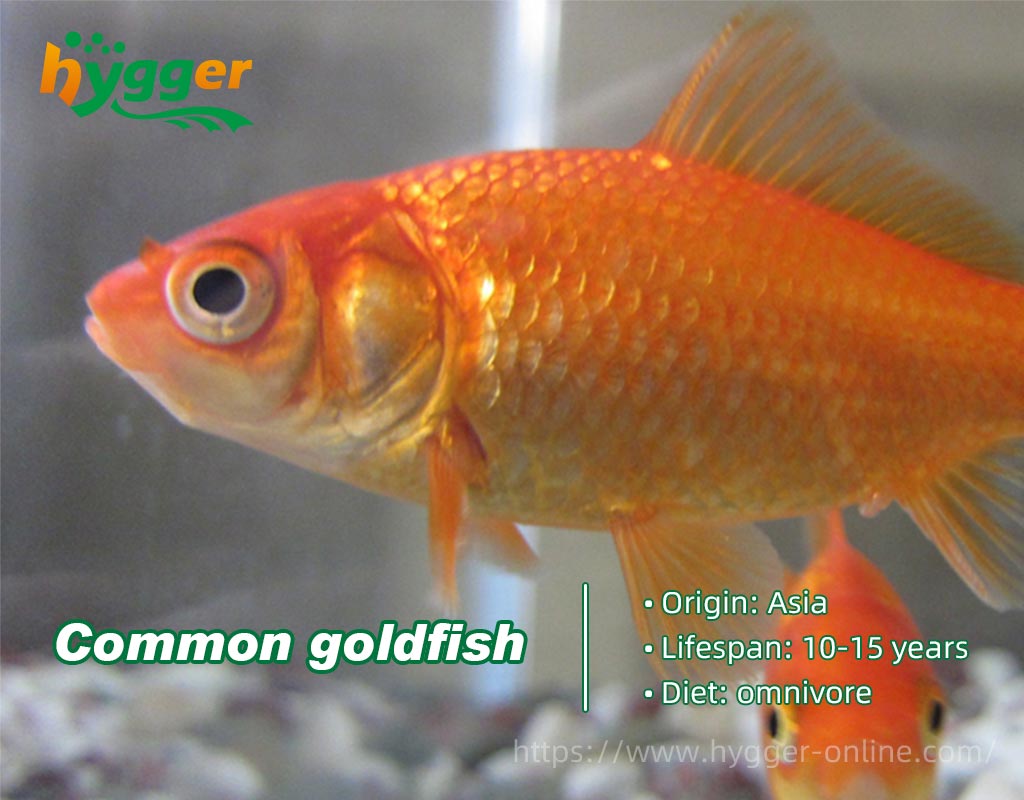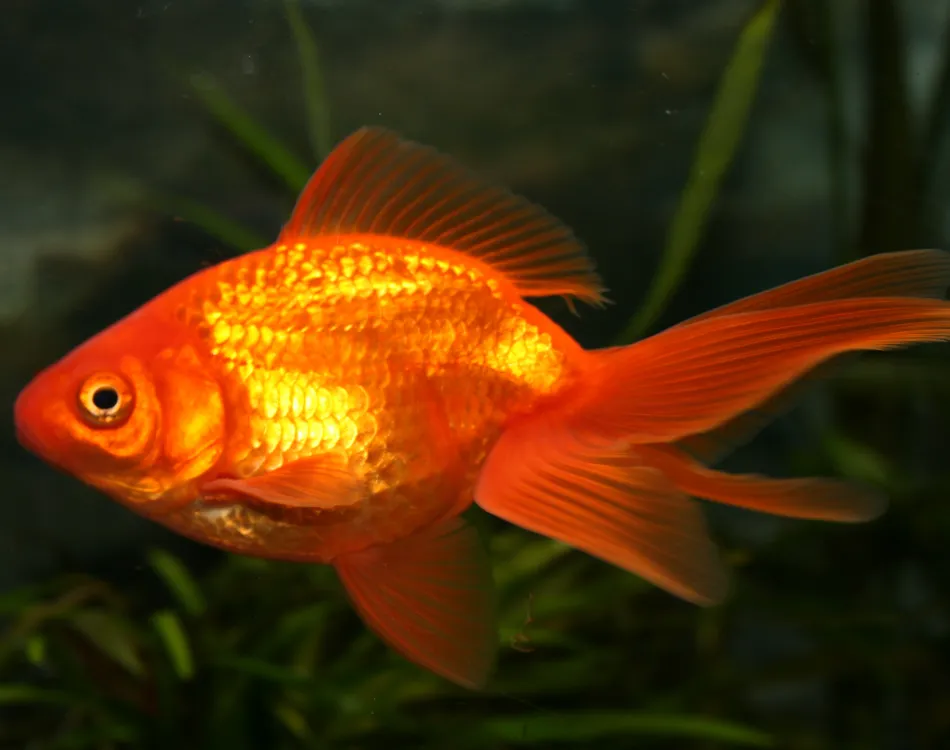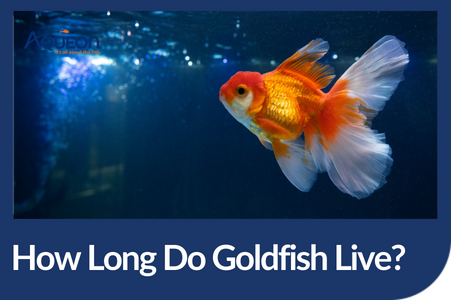A goldfish can live up to 10-15 years with proper care. Some even reach 20 years in optimal conditions.
Goldfish are popular pets known for their vibrant colors and easy maintenance. Many people are surprised by their potential lifespan. Proper care, including a clean tank, balanced diet, and regular monitoring, can significantly extend a goldfish’s life. Water quality is crucial, as poor conditions can lead to health issues.
Regular tank cleaning and appropriate filtration systems help maintain a healthy environment. Goldfish also need enough space to swim freely. Overcrowding can stress them and shorten their lifespan. Providing a varied diet with quality fish food ensures they receive necessary nutrients. With the right care, your goldfish can thrive for many years.
The Lifespan Of A Goldfish
Goldfish are fascinating and popular pets. Many people wonder about their lifespan. How long can a goldfish live? This depends on several factors. Let’s explore these factors and clear up common misconceptions.
Factors Influencing Lifespan
Several factors influence a goldfish’s lifespan. These factors include:
- Environment: Clean water and a spacious tank are crucial.
- Diet: A balanced diet ensures proper nutrition.
- Genetics: Some goldfish breeds live longer than others.
- Care: Regular tank maintenance and health check-ups matter.
Here is a table summarizing these factors:
| Factor | Importance |
|---|---|
| Environment | High |
| Diet | Medium |
| Genetics | Medium |
| Care | High |
Common Misconceptions
Many people have misconceptions about goldfish. Here are some common ones:
- Goldfish can live in bowls. This is false. They need large tanks.
- Goldfish have short lifespans. They can live up to 10-15 years or more.
- Goldfish grow to the size of their tank. This is not true. They need space to grow.
Understanding these misconceptions is important for goldfish care. Proper care can help your goldfish live a long and healthy life.

Credit: www.hygger-online.com
Goldfish In The Wild Vs. Captivity
Understanding the lifespan of a goldfish depends on its environment. There are stark differences between goldfish living in the wild and those kept in captivity. Let’s explore these differences in detail.
Natural Habitats
Goldfish in the wild live in ponds, lakes, and slow rivers. These environments provide ample space and natural food sources.
- Space: Wild goldfish enjoy vast spaces to swim freely.
- Diet: They eat algae, insects, and small plants.
- Water Quality: Natural water bodies often have stable water quality.
Wild goldfish can live up to 10-15 years due to their natural surroundings.
Captivity Conditions
Goldfish in captivity often live in fish tanks or small ponds. The quality of their environment depends on care and maintenance.
- Tank Size: Larger tanks provide more space and better water quality.
- Diet: A balanced diet ensures goldfish health. Include fish flakes, vegetables, and occasional protein.
- Water Quality: Regular cleaning and filtration are crucial for their well-being.
In optimal conditions, captive goldfish can live up to 10-20 years.
| Environment | Average Lifespan | Key Factors |
|---|---|---|
| Wild | 10-15 years | Natural diet, ample space, stable water quality |
| Captivity | 10-20 years | Proper tank size, balanced diet, clean water |
Proper Care For Optimal Health
Goldfish can live for many years with proper care. The right environment and diet are essential. Let’s explore the key aspects of caring for your goldfish.
Tank Size And Environment
Your goldfish needs a proper tank size to thrive. A small bowl is not suitable. Aim for a tank that is at least 20 gallons.
Goldfish produce a lot of waste. A larger tank helps manage this waste. It also provides enough space for swimming.
Keep the water clean with a good filter. Change 25% of the water weekly. Monitor the water temperature. Goldfish prefer water between 68°F and 74°F (20°C to 23°C).
Decorate the tank with plants and hiding spots. This creates a more natural environment. Avoid sharp decorations that could harm your goldfish.
Diet And Nutrition
Goldfish need a balanced diet. Special goldfish flakes or pellets are best. Feed them small amounts twice a day.
Overfeeding can cause health problems. Remove any uneaten food after 2 minutes. This keeps the water clean.
You can also give them occasional treats. Peas, lettuce, and brine shrimp are good choices. Cook the peas and remove the skins before feeding.
Avoid feeding bread or human food. These can harm your goldfish. Stick to a diet that meets their nutritional needs.
| Food Type | Frequency |
|---|---|
| Goldfish Flakes/Pellets | Daily |
| Peas (skinned) | Occasional Treat |
| Brine Shrimp | Occasional Treat |
Following these tips will help your goldfish live a long, healthy life.

Credit: gradexco.com
Common Health Issues In Goldfish
Goldfish are popular pets, but they can have health problems. Knowing the common health issues helps in keeping them healthy and happy. Below, we discuss the signs of illness and preventive measures for goldfish.
Signs Of Illness
Watching for signs of illness in your goldfish is crucial. Here are some common signs:
- Clamped fins: Fins held close to the body can indicate stress.
- Loss of appetite: A goldfish not eating might be sick.
- White spots: These could be a sign of ich, a common parasite.
- Erratic swimming: Swimming upside down or sideways indicates a problem.
- Labored breathing: Gasping at the surface might mean poor water quality.
Preventive Measures
Preventing health issues in goldfish involves several key actions. Follow these steps to ensure a healthy environment:
- Maintain clean water: Regularly change 20% of the water each week.
- Proper filtration: Use a good filter to keep the water clean.
- Balanced diet: Feed a varied diet to provide all necessary nutrients.
- Avoid overcrowding: Provide enough space for each goldfish.
- Quarantine new fish: Isolate new fish for two weeks before adding them.
Following these measures can help prevent common health issues in goldfish, ensuring they live long and healthy lives.
The Role Of Genetics In Goldfish Longevity
Goldfish are popular pets known for their vibrant colors and playful nature. But their lifespan varies greatly. One key factor is genetics. Understanding how genetics affect goldfish longevity helps in providing better care.
Breed Variations
Different goldfish breeds have different lifespans. Common goldfish can live up to 15 years. Fancy goldfish, like the Oranda and the Ryukin, typically live between 10-12 years. The breed significantly influences their longevity.
| Goldfish Breed | Average Lifespan |
|---|---|
| Common Goldfish | 15 years |
| Oranda | 10-12 years |
| Ryukin | 10-12 years |
Inherited Traits
Genetics play a crucial role in goldfish health. Healthy genes help in resisting diseases. Goldfish with strong genetic makeup live longer. Genetic defects can shorten their lifespan.
- Strong immune system
- Resistance to diseases
- Healthy growth patterns
Selective breeding aims to enhance these traits. Breeders choose parents with desirable traits. This increases the chance of healthy offspring.

Credit: www.aqueon.com
Myths Vs. Facts About Goldfish Memory
Goldfish are fascinating pets, but many myths surround their memory and intelligence. Some believe goldfish have a short memory, while others argue they are smarter than we think. Let’s dive into the myths and facts about goldfish memory.
Short-term Memory Myth
Many people think goldfish have a memory span of just a few seconds. This idea suggests that goldfish can’t remember things from one moment to the next. Research, though, shows that this is not true.
Scientists have conducted experiments to test goldfish memory. They found that goldfish can remember things for weeks, even months. For example, goldfish can be trained to respond to different lights and sounds. This training shows that goldfish have a much longer memory than the myth suggests.
Cognitive Abilities
Goldfish are more intelligent than many believe. They can learn and remember tasks, showing significant cognitive abilities. For instance, goldfish can recognize their owners. They can also distinguish between different shapes and colors.
Goldfish can navigate mazes and solve simple problems. These abilities indicate that goldfish have a good memory and intelligence. Training goldfish with food rewards can enhance their cognitive skills further.
| Myth | Fact |
|---|---|
| Goldfish have a 3-second memory. | Goldfish can remember for months. |
| Goldfish are not intelligent. | Goldfish can solve problems and learn tasks. |
Understanding the truth about goldfish memory can help you care for them better. Knowing they have good memory and intelligence can lead to a more enriching environment for your pet goldfish.
Record-holding Goldfish
Have you ever wondered how long a goldfish can live? Some goldfish hold records for their impressive lifespans. These remarkable fish have amazed many with their longevity.
Oldest Goldfish Ever
The oldest goldfish ever recorded was named Tish. Tish lived for an astounding 43 years. Tish’s owner won him at a fair in 1956. Tish passed away in 1999. That is a very long life for a goldfish.
Factors Behind Longevity
Several factors contribute to a goldfish’s long life. These factors include:
- Proper diet
- Clean water
- Adequate space
- Regular health checks
Proper diet is crucial. Goldfish need a balanced diet. Clean water helps them stay healthy. Regular water changes are necessary. Adequate space allows them to swim freely. Overcrowding can cause stress. Regular health checks can catch problems early.
Enhancing Goldfish Lifespan
Goldfish can live a long time with proper care. Enhancing their lifespan involves specific steps. These steps include regular maintenance, mental stimulation, and a healthy diet. Each plays a crucial role. Let’s explore how to make your goldfish live longer.
Regular Maintenance
Regular maintenance is key to a goldfish’s health. Clean the tank every week. Use a water filter to keep the water clean. Change 20% of the water weekly. This helps remove toxins.
Monitor the water temperature. Goldfish thrive in water between 65-75°F (18-24°C). Use a heater to maintain the temperature. Check the water pH. Ideal pH for goldfish is between 7.0 and 7.4. Use a pH testing kit for this.
Feed your goldfish a balanced diet. Include flakes, pellets, and vegetables. Avoid overfeeding. Feed them twice a day. Only give what they can eat in 2 minutes.
Mental Stimulation
Mental stimulation is important for goldfish. It keeps them active and happy. Use toys and decorations in the tank. Rearrange them every week. This provides new experiences for your fish.
Train your goldfish to do simple tricks. Use food as a reward. Goldfish can learn to swim through hoops. They can also follow a stick. These activities keep them engaged.
Introduce a companion goldfish. Goldfish are social creatures. A tank mate can reduce stress and boredom. Ensure the tank is big enough for two fish.
| Maintenance Task | Frequency |
|---|---|
| Water Change | Weekly |
| Tank Cleaning | Weekly |
| Feeding | Twice Daily |
| Decor Rearrangement | Weekly |
By following these steps, you can enhance your goldfish’s lifespan. Happy fish live longer. Provide a clean and stimulating environment. This will ensure your goldfish thrives for many years.
Goldfish As Pets: What To Expect
Goldfish are popular pets known for their bright colors and playful nature. They are relatively easy to care for, making them perfect for beginners. But owning a goldfish requires understanding their needs and lifespan.
Commitment Level
Goldfish need consistent care and attention. They may seem low-maintenance, but they require a proper environment to thrive.
- Daily feeding
- Regular tank cleaning
- Health monitoring
Goldfish can live up to 10-15 years with proper care. This means a long-term commitment compared to other pets.
Long-term Considerations
Goldfish grow over time and need a spacious tank. A small bowl is not suitable for their long-term health.
| Consideration | Details |
|---|---|
| Tank Size | 20 gallons for one goldfish |
| Water Quality | Regular water changes and filtration |
| Diet | Balanced diet of flakes, pellets, and vegetables |
Goldfish also produce a lot of waste. This means you need to clean their tank frequently.
Conservation And Ethical Considerations
Goldfish are more than simple pets. They are living beings that need care. Owning a goldfish brings conservation and ethical responsibilities.
Responsible Ownership
Responsible ownership means providing a good home for your goldfish. Ensure the tank size is appropriate. A small bowl is not enough. Goldfish need space to swim and grow.
Use a proper filtration system. Clean water keeps your goldfish healthy. Feed them a balanced diet. Overfeeding can cause health problems.
- Provide enough space
- Use a filtration system
- Feed balanced diet
Environmental Impact
Goldfish can affect the environment. Never release them into wild waters. They can disrupt local ecosystems.
Dispose of aquarium water properly. Contaminated water can harm local water bodies. Use eco-friendly cleaning products for the tank.
| Do’s | Don’ts |
|---|---|
| Properly dispose of aquarium water | Release goldfish into wild waters |
| Use eco-friendly cleaning products | Use harmful chemicals |
By following these guidelines, you help conserve the environment. Your goldfish stay healthy and happy.
Conclusion
Goldfish can live up to 10-15 years with proper care. Ensure clean water, balanced diet, and a spacious tank. Regular maintenance and monitoring are key to their health. By following these tips, you can enjoy the company of your goldfish for many years.
Happy fishkeeping!
